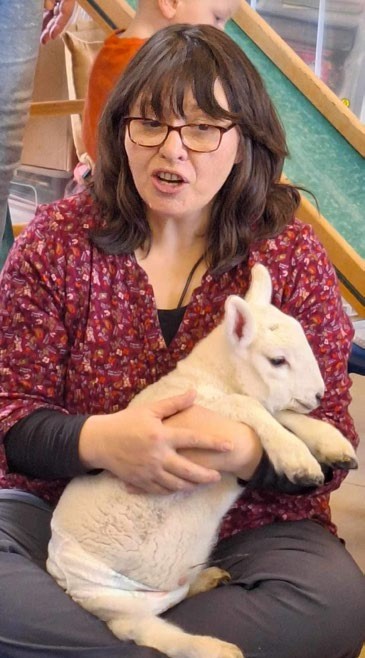TOWARDS MINISTRY
A shift in emphasis
In the final part of a series considering the call to serve, the Very Rev Dr Martin Fair uses the Parable of the Lost Sheep in looking to the ministry of the future.
IF a shepherd has a flock of one hundred sheep and all one hundred are accounted for, the role of that shepherd is to tend the flock.
But if one or more of the flock is lost, the role of the shepherd changes. It’s now about finding the lost sheep.
This is how I recall it to have been when visiting my relatives’ farm near Kirkcudbright during childhood years. I still remember being struck by how my Uncle David cared for the sheep. All of them.
I see the same approach in one of our current ministers, Andrea Boyes, who has the flock of her congregations and a small flock of actual sheep!
First and foremost, I could never fathom how my uncle was able to count the sheep! Even more was I amazed that he was able to identify particular sheep when to me, they all looked the same! And then there were the individualised care packages put in place for lambs that had additional support needs – cardboard boxes in front of the kitchen range.
And yes, I remember the occasions when upon realising that there was a sheep missing, my uncle would search the field to find it.
It’s this very scene that Jesus conjures up in the Parable of the Lost Sheep:
‘Suppose one of you has a hundred sheep and loses one of them. Doesn’t he leave the ninety-nine in the open country and go after the lost sheep until he finds it?’
Luke 15:4
What might this have to say about ministry today and about the kinds of ministers we’ll need and about how we’ll need to prepare these ministers?
What is abundantly clear is that, with few exceptions, our congregations are significantly smaller than once was the case. These reductions were accelerated as a result of the pandemic but otherwise had been happening since the mid-1950s. And within that, a large number of our congregations have few if any children and young people.
All of this should cause us to ask: can ministry be concentrated on tending the flock when the flock is largely lost?
It’s out of that reality that we hear talk of church planting and pioneering ministry and it’s why the word ‘mission’ appears so regularly in our pronouncements and deliberations. There is a growing acceptance – and not before time – that business as usual in terms of how we do church isn’t cutting it. Of course, there are examples of more traditional churches continuing to thrive but they are few.
And so the church as a whole needs to be open to fresh approaches and in particular, approaches which accept that if people aren’t coming to us, we need to be where people are.
Essentially this is a shift in emphasis from attraction to dispersal – God’s people not just gathering but going.
All of this is to say that in a largely un-churched culture, there is a need for ministers who will go beyond the fold and minister there – in new and imaginative ways – and a need for the church at large to realise that not all of our ministers can be tenders of flocks.

The Rev Andrea Boyes with a lamb
Ministry tomorrow – an exploration of new forms of ministry; pioneering, church planting etc. A recognition that when people have largely stopped coming to our churches, we’ve got to explore ways of being present where people are, in new ways. And in this, an affirmation that ministry is for all of us and that our calling might be to keep doing exactly what we’re doing in our local situation.